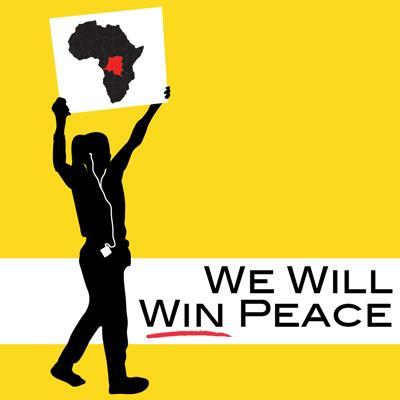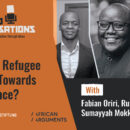Beyond Pistorius: The Politics of South African Justice – By Nicholas Rush Smith

 From New York to New South Wales people have waited with bated breath to find out if Oscar Pistorius would be found guilty of murdering his girlfriend, Reeva Steenkamp, in South Africa’s version of the OJ Simpson trial. As commentators analyzed every evidentiary turn, the trial revealed the paranoid world in which many wealthy white South Africans live. From the assignment of a highly regarded prosecutor and judge to the case, it also showed that the South African state is willing to expend incredible resources to bring a high profile suspect to justice.
From New York to New South Wales people have waited with bated breath to find out if Oscar Pistorius would be found guilty of murdering his girlfriend, Reeva Steenkamp, in South Africa’s version of the OJ Simpson trial. As commentators analyzed every evidentiary turn, the trial revealed the paranoid world in which many wealthy white South Africans live. From the assignment of a highly regarded prosecutor and judge to the case, it also showed that the South African state is willing to expend incredible resources to bring a high profile suspect to justice.
Yet even as the Pistorius trial has dominated international headlines about South Africa, two lesser known public hearings – the Khayelitsha and Marikana Commissions of Inquiry – reveal more about the challenges with crime and policing average South Africans face. They are also more consequential. Together they show that who has access to the country’s basic institutions of the rule of law is decided as much by party politics as the rights of citizenship.
The Khayelitsha Commission demonstrates this clearly. Presided over by a former Constitutional Court judge and head of the National Prosecuting Authority, the Khayelitsha Commission investigated police inefficiency in the Cape Town suburb of the same name. It was created after dozens of vigilante killings in the area made headlines in 2011 and 2012. Vigilante violence is remarkably common in South Africa, where the police estimate that almost 5 percent of the country’s murders result from vigilantism. Nevertheless, even against this violent background, the Khayelitsha murders were particularly gruesome, often involving the practice of “˜necklacing’ whereby a crowd places a petrol filled tire around the neck of the alleged criminals before setting it alight.
Typically such murders result in little fanfare, perhaps a newspaper article and the possible arrest of perpetrators. But the scale and speed of these murders caught the attention of local NGOs who filed a formal complaint with the provincial government, claiming that abysmal policing was responsible for the grisly murders. The groups argued the police were so lackluster that their relations with the local community had fallen apart, making residents feel they had no choice but to take the law into their own hands. The NGOs demanded an official inquiry.
Troublingly, the Commission only began work after stiff resistance from the African National Congress-led (ANC) government, which has responsibility for the police. Indeed, the provincial government, ruled by the ANC’s chief rival, the Democratic Alliance (DA), had to go to the Constitutional Court to get a ruling allowing the Commission to go ahead. No doubt the DA saw the Commission as an opportunity to expose the underperformance of its electoral foe, a fact suggested by its refusal to include the police services for which it had responsibility in the Commission’s remit. In other words, politics has shadowed the Commission from its outset and, worryingly, for Khayelitsha residents the battle between the two parties suggests that fair access to everyday policing may be governed by electoral whims.
If the Khayelitsha Commission reveals the politics of quotidian policing, the Marikana Commission has exposed the politics of policing at its highest levels. Even though it has drawn little international attention, the Marikana Commission of Inquiry has dominated headlines in South Africa for nearly two years. The Commission is investigating forty-four killings over several days in August 2012 amidst a mining strike, including the deaths of thirty-four miners gunned down by police. Police officials have maintained the killings were committed in self-defense, while representatives for the miners have argued that massacre was, at best, caused by police incompetence and, at worst, cold-blooded murder.
The latter accusations have been fueled by revelations that Cyril Ramaphosa, a senior figure in the ANC and a board member of the mining company at the heart of the strike, contacted government officials to demand “concomitant action“ against the miners for violence committed during the strike. The emails also refer to the strikers as “dastardly criminals,” a phrase that suggests the criminalization of working class politics by corporate-aligned state leaders.
While this criminalization of working class politics by elites suggests a dim future for South Africans seeking better wages, it also shows party politics overshadow equitable access to justice. In particular, the Commission has exposed the ways in which the police have become embroiled in political faction fights. The ANC is a classic “˜big tent’ party whose cohesiveness is fading over time. And as this cohesiveness has started to wane and its dispensing of patronage has increased, the police have been increasingly used by political elites to counter rivals. The same appears to be true at Marikana where the supremacy of an ANC aligned union, the National Union of Mineworkers, was being challenged by an upstart challenger with whom the strikers had aligned, the Association of Mineworkers and Construction Union. At this intersection of union, party and police politics, the massacre happened.
Accusations about institutional impropriety always offer a chance for political aspirants to make electoral hay. The same is true here. One of the lawyers for the miners, Dali Mpofu, has built on the notoriety he has garnered at the Commission for being a vanguard of the left to take a lead role in setting up the Economic Freedom Fighters (EFF), a rival party to the ANC. Regardless of the fact that some of his fellow EFF standard bearers have been accused of being just as rapacious as the ANC’s elites, the EFF won 25 seats in South Africa’s most recent elections, to become the third largest party in the legislature.
So how can average South Africans improve their access to equitable policing? Counterintuitively, the fact that policing is so political offers opportunities. In particular, the two Commissions show the role committed community organizations can have in exposing substandard policing and the politicians responsible for it. This is no small thing. Indeed, such exposure is a testament to the underlying strength of South Africa’s democratic institutions. States sometimes underperform, fail, or act abusively. The test of a robust democracy is whether citizens are able to challenge and correct such failures when they do. In that regard, the two Commissions offer hope for more effective policing in the future precisely because they are so wrapped up in party politics. Although South Africa’s citizens may not have equal access to fair policing, the fact that all South Africans do have equal access to voting booths and to the streets creates powerful opportunities to pressure their political leaders to provide equal justice for all. To realize justice, they need to take advantage of both.
Nicholas Rush Smith is Assistant Professor of Political Science, City University of New York – City College.







“No doubt the DA saw the Commission as an opportunity to expose the underperformance of its electoral foe… In other words, politics has shadowed the Commission from its outset ”
Anyone who claims to know the mind of another, and then draws inference from that, is not worth reading. An assistant professor of Political Science should know better.